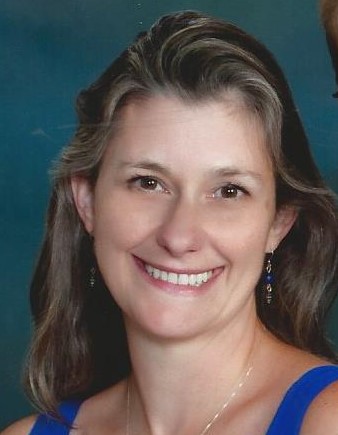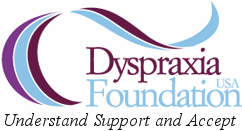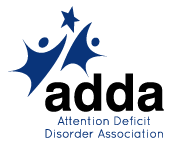Cuddling and Coaching
This month, I’m teaming up with Kassandra Brown, Cuddlist, and Relationship Coach in my continuing co-authoring blogs.
Cuddlist sessions offer professional platonic touch in a nurturing environment – AKA cuddling. It is a therapeutic modality that is clear, consensual, and empowering. Sessions feel good to both the Cuddlist and the client, with both being welcome to touch one another in platonic ways. A strong emphasis on communication includes:
- A Code of Conduct.
- Talking about boundaries.
- Agree to speak up or move if either is uncomfortable for any reason.
While it may sound unusual, Kassandra bets you can think of some reasons it would feel good to have a set time, place, and person to hold you with care and safety. Just think of the opposite – Have you ever experienced bullying or rejection when you reach out for love? Did you have moments in your childhood when you wanted to be held and reassured, but instead, you got corrected, criticized, or ignored?
Has the pandemic been hard on you? No one is sure of the lasting effects of isolation and touch deprivation over the last two years, but WHO reports a 25% increase in anxiety and depression worldwide. Isolation, lack of touch, and fear of other people can all leave us feeling anxious, lonely, depressed, and starving for the kind of attention and attachment we need.
We are all wired for connection. Touch, kind words, and listening with curiosity and compassion are powerful ways to signal connection, safety, and belonging. These are all features of a Cuddlist session.
Since the beginning, people have held their children for protection and development. For years it had been considered a soft science that there was a connection between brain development and emotional and physical well-being. There is plenty of science and studies now to back up this claim. Taken together, this research proves that we need care, consistency, attunement, love, and connection to thrive. Lacks can, at a minimum, increase the tendency towards depression, anxiety, panic attacks, addictions, difficulty self-soothing, tumultuous relationships, a feeling of being other, alien or not belonging, and isolation.
People with neurodiversity tend to trust, be gullible, and be naive. My clients (Sheila’s) tend to hold a firm value of fairness, kindness, hope, and love as top values, so they assume others do as well. These qualities increase their chances of being neglected, bullied, or receiving violent touch. The average 12-year-old with ADHD hears about 20,000nmore negative comments about themselves than their neurotypical counterparts. When coupled with a differently wired brain, it can be hard to repair the negative beliefs about themselves or the abuse that has been done. Reaching out at the moment or the future is more challenging and may lead to a cycle of increasing isolation, anger, and hurt.
We all need to heal in a relationship, and we all need someone who is attuned to us, caring, and safe. It can be hard to find that through dating or friendship. The environment of a Cuddlist session is a therapeutic space to connect and allow healing to occur. Empowering and soothing, you, the client, are in complete control of touch – how you touch, if you feel, how fast or slow you touch – while having expert facilitation and guidance to ask for what you want and keep clear boundaries.
This clarity and communication about desires and boundaries are unique and often very welcome to people with neurodiversity. We can be more confident when we know the rules and the container. We are less likely to get negative feedback, rejection, or shame in response to our attempts to connect. And we are much more likely to get positive feedback, a touch that feels good, and a connection that feels nourishing. Clients are given space to process feelings with an understanding listener that allows them to understand themselves better and room for quiet contemplation with companionship, which is rare for most.
There are several different attachment types according to attachment theory. You can read about Attachment styles here. If you are wondering what type you are: Take the quiz. The odds are you are a mix of all types. Different situations bring out different attachment patterns. We are all capable of secure attachment. No matter what our past or present.
So what does a Cuddlist session look like exactly? A session can help you rewire to secure attachment patterns by giving you a safe space to reach out, connect, and be held on your terms. Things to know:
- You don’t have to worry about being left.
- You know precisely when the session will end.
- You know it will be all about you right up until the end.
- You can move closer or farther away at any point.
- You can say yes and no.
- You have been reassured I will speak up or move if I’m uncomfortable, and you’ve assured me that you will do the same.
During or after the session, you can recognize what it’s like when someone gives you the touch, care, and attention you want rather than settling for less than you deserve.
What does a Neurodiverse Coach do?
- Beliefs you are naturally creative and whole—nothing to fix here.
- The ND Coach holds space to feel accepted, be open and honest, and be fearless while exploring and discovering.
- The ND Coach and client engage in thought-provoking and creative conversations.
- The ND coach, who understands how neurodiverse brains work, asks questions, challenges you, and uses collaborative brainstorming to help you explore current concerns and opportunities while looking at areas of personal growth and development which you identify.
- The coach supports the client while providing structure and accountability, as needed, to help you plan actions to achieve your goals.
Usually, after but sometimes during the session, you can recognize what tools, structures, and beliefs support you in moving your life forward.
By themself or together, Cuddling and Coaching can be supportive modalities for your life.

Big Bang Coaching, LLC provides coaching for the neurodiverse.










